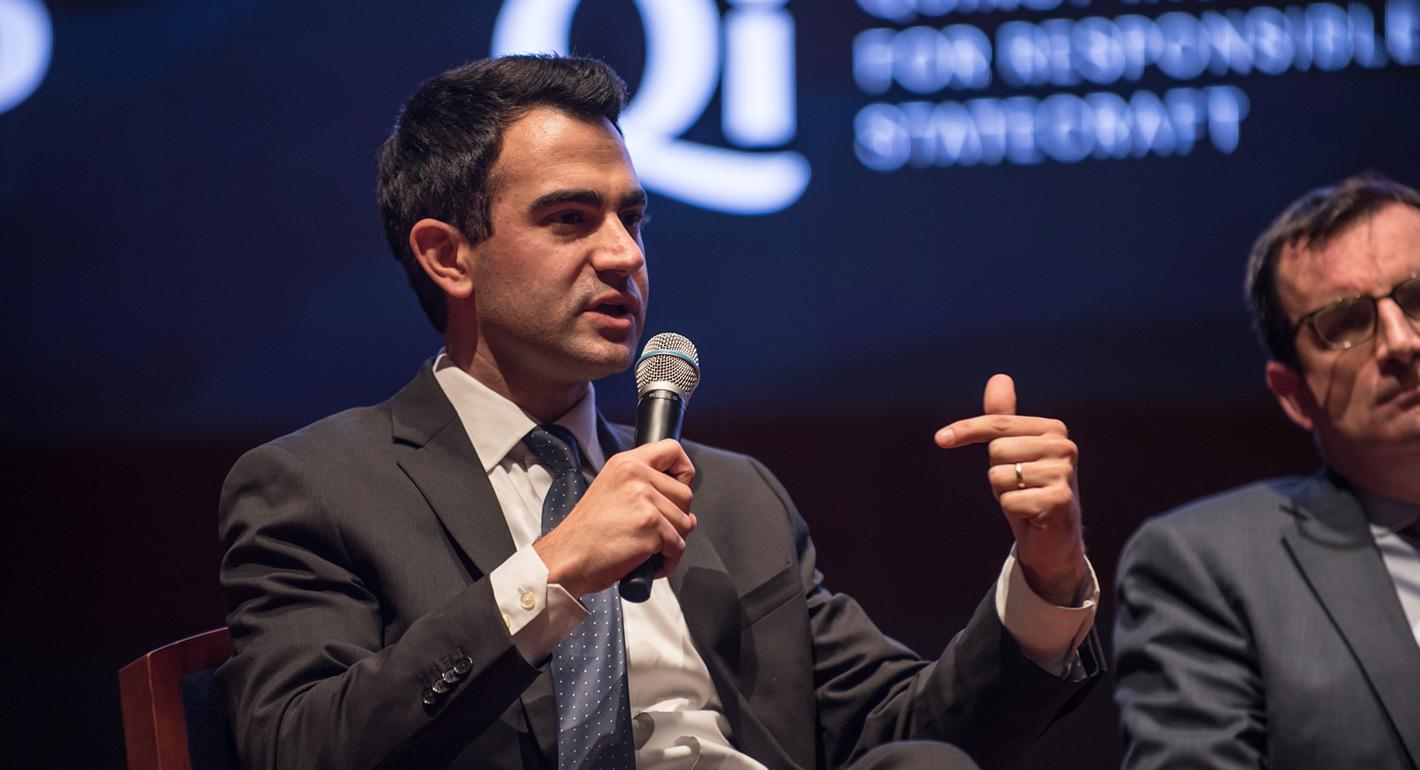When I hear invocations of the “lessons of history,” my first reaction is to grimace. I know that, as a historian, I am supposed to affirm the utility of the past. But when history’s lessons are widely asserted as incontestable truths, I fear that trouble lies ahead. Such assertions often only distort the past and obscure the stakes we face in the present. They mostly reveal where someone wants to take the future.
I came to this understanding after seeing history conscripted into the service of some of the most destructive U.S. foreign policy mistakes over the course of my lifetime. When the Soviet Union collapsed, history was said to have delivered its final verdict: the universal triumph of U.S.-style liberalism was at hand. If that victory did not manifest everywhere immediately, it was assumed that deploying U.S. power to nudge history along would only do the world some good. Such efforts intensified after the 9/11 terrorist attacks, as the postwar occupations of Germany and Japan suddenly became models to be transplanted across an arc of the globe.
When history, or the people who make it, proved less than obliging, some U.S. leaders responded with a cry to restore America’s greatness. Others countered by seeking to revive what they called the U.S.-led, postwar rules-based order. One form of nostalgia competed with another, each reaching back to mid-twentieth-century glories. Meanwhile the challenges of the twenty-first century, domestically and globally, remain underserved—by specific policies, yes, but also by an impoverished concept of what the United States’ place in the world can be.
It’s here that history has something to offer. History provides orientation. Sometimes illuminating the conditions of prior choices vindicates their continuation in the present; other times it clarifies why and how to move beyond them. Rather than instill permanent lessons, then, history can open up options. And fresh options, which take account of inherited ideas but never defer to them, may be just what’s required to revitalize American statecraft.
How can it be, after all, that the most powerful nation on earth constantly acts like it has the least scope for choice? Wedded to old ways, as though unwilling to accept its own Cold War victory, the United States has gone on dividing the world into military allies and actual or potential enemies, shouldering many of the burdens toward both. The result is a failed foreign policy that corrupts strategy, generates dangers, and inhibits creative initiatives. U.S. conduct also bewilders many citizens, who wonder why so many deadly actions are being performed in their name.
The United States can do, and has done, better. Long before I had any thought of one day coming to the Carnegie Endowment for International Peace, I wrote about how Carnegie’s first president, Elihu Root, searched for a way to strengthen international law without the United States always acting as its armed enforcer. Then I wrote a book set during World War II: it admires the U.S. officials and intellectuals who responded to unprecedented challenges by deciding to pursue global military dominance, but also asks whether the project they launched, tragic in their own time, remains compelling in ours.
As I have kept moving forward, the pursuit of history has led me in a sense beyond history itself. It has brought me out of the university to co-found the Quincy Institute for Responsible Statecraft and now to join the American Statecraft Program at Carnegie. And my historical research has brought me out of the past to work directly on the strategic choices that can make U.S. global engagement more peaceful, more disciplined, and more responsive to the public interest.
I worry that the United States might instead apply the same errors made in recent decades to matters of graver consequence, whether to relations with China or Russia or to challenges like climate change and disease. But I also believe that, in a more competitive world and a more unsettled country, policymakers have opportunities to focus on what matters. They can shed unnecessary problems and harness the United States’ enduring strengths: an innovative economy, a favorable geographical position, a diverse and dynamic culture, and a robust if ever-tested democracy.
These are advantages that no other power can easily take away. It is likely to be Americans who will decide their fate. At Carnegie, we can generate new insights to help the United States live in peace and safety with the world—and with itself.
